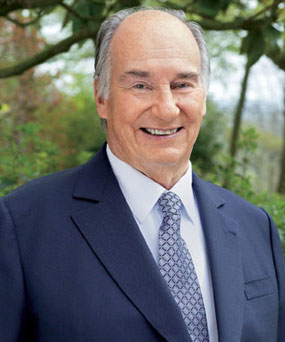The Greatest Challenge of Our Time
 “Information travels more quickly, in greater quantities these days. But the incalculable multiplication of information can also mean more error, more exaggeration, more misinformation, more disinformation, more propaganda.
“Information travels more quickly, in greater quantities these days. But the incalculable multiplication of information can also mean more error, more exaggeration, more misinformation, more disinformation, more propaganda.
The world may be right there on our laptops, but the truth about the world may be further and further away.
Too often, as the world grows more complex, the temptation for some is to shield themselves from complexity. We seek the comfort of our own simplicities, our own specialities. As has often been said, we risk learning more and more, about less and less. And the result is that significant knowledge gaps can develop and persist.
The danger is that knowledge gaps so often run the risk of becoming empathy gaps. The struggle to remain empathetically open to the Other in a diversifying world is a continuing struggle of central importance for all of us. . . .
How can we respond to such tendencies? The response I would emphasise today is a thoughtful, renewed commitment to the concept of pluralism and to the closely related potential of civil society. . . .
In an increasingly cosmopolitan world, it is essential that we live by a ‘cosmopolitan ethic,’ one that addresses the age-old need to balance the particular and the universal, to honour both human rights and social duties, to advance personal freedom and to accept human responsibility. It is in that spirit that we can nurture bonds of confidence across different peoples and unique individuals, welcoming the growing diversity of our world, even in matters of faith, as a gift of the Divine. Difference, in this context, can become an opportunity – not a threat –a blessing rather than a burden. . . .
As we look ahead, in sum, we face a world in which centrifugal and fragmenting influences are of growing importance, presenting new governance challenges allacross the planet, and especially in fragile societies. In such a world, the voices of pluralistic civil society can help ensure that diversity does not lead to disintegration, and that a broad variety of energies and talents can be enlisted in the quest for human progress. Diversification without disintegration, this is the greatest challengeof our time.
Over the past six decades I have been immersed in the problems of developing societies, grappling with ways to assist their populations, despite both natural hazards and human errors. It is my conviction that a strong, high-quality, ethical and competent civil society is one of the greatest forces we can work with to underwrite such progress. And, if this is correct, then the role of great universities has never been more important.”
His Highness the Aga Khan
Chancellor, The Aga Khan University
The 88th Stephen Ogden Lecture
Brown University, Providence, Rhode Island, 2014

